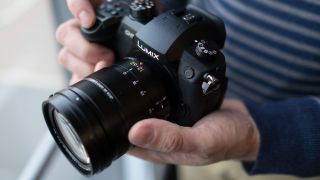As part of the course for the African studies masters the 6th seminar of Researching Africa in the 21st Century on the 15th of October 2018 focused on interview as a technique of data gathering, particularly practicing sound recording techniques. For this lecture we had Sjoerd Sijsma as the main lecturer but Vera Bakker and Mirjam de Bruijn assisted him and also stepped in with feedback and useful information, Ruben van Gaalen was not in class as he was ill.
Coffee in hand class starts at 10:15 with some quick useful practical information. Essay deadlines, questions regarding assignments and discussions on the concepts we have look at so far were all part of the first moments of the class. As people started to wake up and these practicality questions were answered we were ready to get started on the real stuff !
Sjoerd began his part of the lecture where we looked at various practical and useful tips in regards to both sound and video, which we can use during our research in Africa. Whether of not we will use visuals in our final research outcome aside from writing the thesis, we all will use digital mediums in our research process even just for data collection! You can’t just sit and write down observations anymore, not only is it out-dated and not keeping up with the times, and wasting useful tools we have, but it would also just be way more time consuming and we would miss out on collecting important moments which sometimes pen and paper can’t collect. Sjoerd gave some useful times which were centred around:
- · Portrait Lighting
- · Lense
- · Framing
- · The Gaze of Protagonists
- · Leaving Things Out
- · The Golden Ratio
- · Leading Lines
- · Point of View
We also discussed how to we should approach taking pictures like making eye contact with people before and signalling that you are going to take the picture. Other tips included seeing the camera as an extension of our body, practicing so that taking pictures eventually becomes organic, building trust and understand the diverse contexts and the environment you are in. Afterwards we looked at some ways to analyse the content of images. The ways to analyse these images are through describing, analyse, interpretation and finally appreciation.
We later moved onto practical tips about working with sound.
· We looked at the single system and the double system where camera and recorder are separate; this method helps have better quality sound.
· Some other helpful tips I particularly took notes of are that the highest frequency should be 48 or 96 and the highest bit wave should be 24; this will help have a nicer recording.
· Also, the recording should be uncompressed and if the sound is above 0 dBFS then it is too loud and it would cut sound. It is better to have it at -6 or -12 because anything over 0 is the clipping point.
· The microphone should also be 20 centimetres away from the speaker, the further the mic is from the person the worse the quality will be and make sure to point it to the person so you don’t capture background noises !
· Hand clapping is a useful thing to do to have the exact starting point for the sound and video so they are synched.
After the tips we received it was time to put our skills to test! In groups of 4 we had to practice interview techniques using a sound recorder. We had to conduct interviews about our research; one person in the group recorded, one observed, one interviewed and the other person was the interviewee. With a few trial and errors the group was able to conduct interviews and learn their way around recorders, which was not a bad start! Due to time constrains only two of the five groups were able to present their interviews. Both groups received some helpful feedback like attempting to improve on avoiding background noises, making sure the volume of both speakers should be equal and not have the interviewer sound louder than the interviewee as well as making sure to ask one question at the time.
As the class came to an end I am sure we have all gained more knowledge which we will use during our research for our thesis. I know these skills will be particularly helpful for me. Having the opportunity to work with professors that are experienced in their field and such multi-disciplinary research methodology and being surrounded by classmates that support and help each other is extremely valuable in the learning process.


